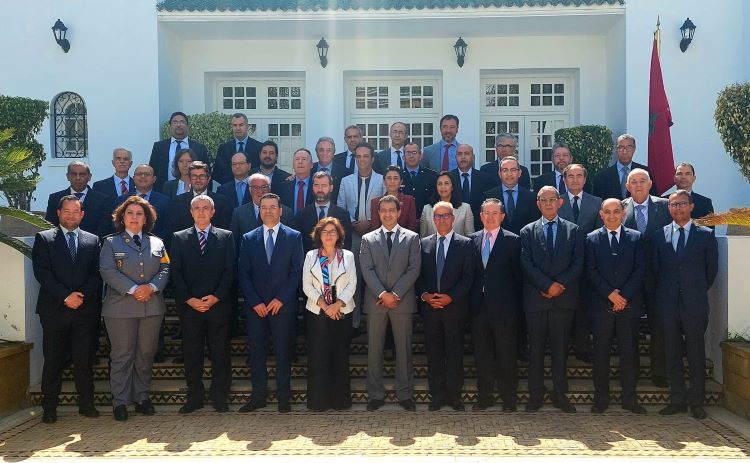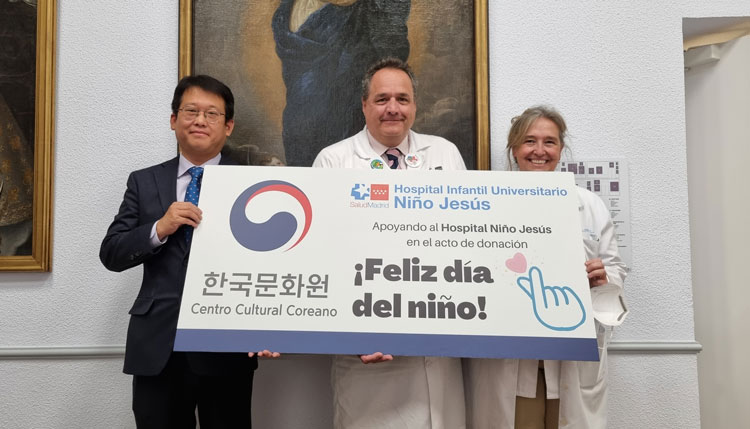Eduardo González
Spain and Morocco have begun to activate the roadmap agreed last April in Rabat between the President of the Government, Pedro Sánchez, and the King of Morocco, Mohamed VI, following the Spanish decision to recognize the autonomy plan for Western Sahara and amid suspicions about Moroccan involvement in spying on the head of the Executive and the Minister of Defense, Margarita Robles.
On the one hand, Rabat hosted yesterday the meeting of the Spanish-Moroccan Joint Commission for the preparation of the Operation Crossing the Strait (OPE), in which the details of the Special Civil Protection Plan for the OPE 2022 were finalized, “which will be closed in the coming weeks and in which all the necessary aspects for the development of the device will be collected, with special attention to the sanitary controls derived from the impact of the COVID-19, according to the Ministry of the Interior.
The last meeting of the Joint Commission was held in Madrid on May 21, 2019 and yesterday’s meeting – chaired by the Undersecretary of the Ministry of the Interior, Isabel Goicoechea, and the director of Migration and Border Surveillance of Morocco, Khalid Zerouali – addressed, among other issues, the operational devices that both countries will put in place to ensure the development of the operation, which will be similar to those established in the OPE 2019. The OPE involves the mobility by sea of more than three million people and more than seven hundred thousand vehicles in a period of three months. “It is the largest European device of these characteristics and one of the most important on a global scale,” Goicoechea recalled.
On the other hand, Rabat will host today the twentieth meeting of the Spanish-Moroccan Permanent Group on Migration, co-chaired by Jesús Javier Perea, Secretary of State for Migration, and the Director of Migration and Border Surveillance of Morocco, Khalid Zerouali. The meeting, which will also be attended by the Secretary of State for Security, Rafael Perea, and the Secretary of State for Foreign and Global Affairs, Angeles Moreno, will address the bilateral collaboration between Spain and Morocco in the management of migration flows.
In this regard, the Minister of Foreign Affairs, José Manuel Albares, said yesterday during a press conference with his Greek counterpart, Nicolaos Dendias, at the Palacio de Viana in Madrid, that the meetings of these working groups show that, “indeed, the roadmap is developing normally”. He also recalled that “the group on migratory issues had not met for two and a half years and the group on the delimitation of maritime borders had not met for fifteen years”. “That is to say,” he continued, “we are setting in motion again mechanisms that had not been activated for a long time and that require reflection, because the objective is to reach solutions that satisfy our citizens, especially the Spaniards of Ceuta and Melilla, the Spaniards of the Canary Islands, the Spaniards of Andalusia, who are the great beneficiaries at the end of this road map that we are going to develop gradually in all sectors.”
Likewise, Albares confirmed that next May 11 he will participate in Marrakech in “the meeting of the Coalition against Daesh, in which Spain is an important country”, but he could not confirm if he will take the opportunity to meet with his Moroccan counterpart, Nasser Bourita, because “the agendas are still being finalized on how the time he will have on the sidelines of that summit will be developed”.
On the other hand, the minister downplayed the importance of the allegations about the possible involvement of Morocco in the spying on Pedro Sánchez and Margarita Robles. “International relations are not based on conjecture or speculation, they are based on facts,” he warned. “Things have to go in order: the first thing is to clarify the facts and then the decisions that have to be taken will be taken, if any have to be taken, but as Minister of Foreign Affairs I am not going to enter into conjectures about any country,” Albares added.







